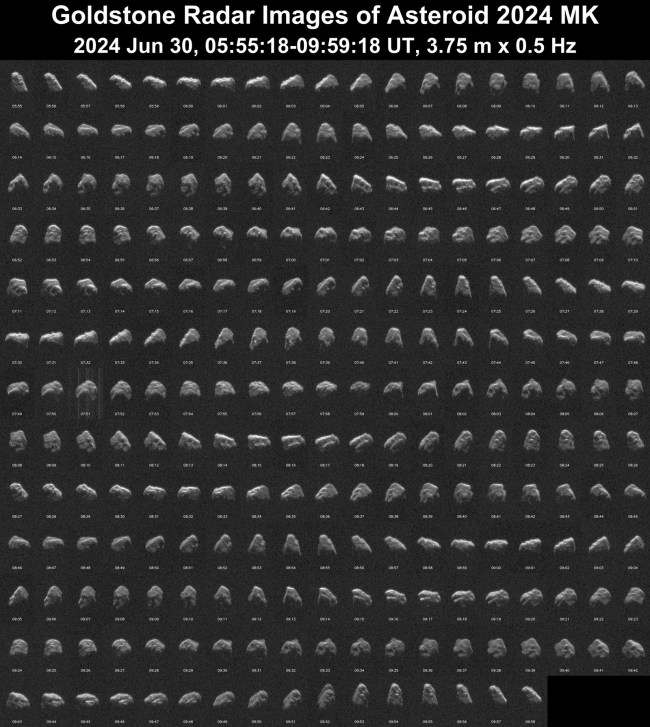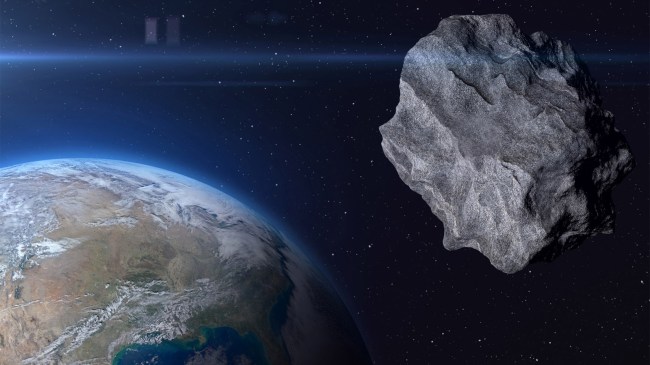iStockphoto
Every time a giant asteroid zooms past Earth there is always, despite what NASA assures everyone, a chance that it could change course and strike our planet.
The reason for that is something called the Yarkovsky Effect, which occurs when an asteroid’s trajectory is changed as it is warmed by radiation from our sun.
An asteroid’s orbit can also be altered by Earth’s gravitational pull, permanently moving it off its previous course.
Such was the case recently with newly discovered Asteroid 2024 MK.
On June 29th, only 13 days after NASA discovered it existed, Asteroid 2024 MK zoomed past Earth at about three-quarters the distance from Earth to the moon. That is a distance, in space terms, that is very, very close. By comparison, the distance between Earth and the sun is about 93 million miles.
2024 MK is estimated to measure about 500 feet wide. That, along with its close proximity to Earth, means NASA classifies it as being not only a Near-Earth Object (NEO), but a “Potentially Hazardous” one.

NASA-JPL
Which is why it was a little bit concerning when Asteroid 2024 MK zipped by Earth at a distance of just 184,000 miles and its trajectory changed, moving it to an even closer distance to our planet than it had been orbiting at before the pass.
According to Live Science…
This alteration was quite significant. The asteroid previously orbited the sun every 3.3 years, spending most of its time in the asteroid belt between Mars and Jupiter. However, scientists now believe that it will take 24 fewer days to complete the route, according to JPL.
“Close approaches of Near-Earth Objects the size of 2024 MK are relatively rare, occurring about every couple of decades, on average,” NASA said in a press release.
On the positive side, NASA officials also assured the public that Asteroid 2024 MK’s “future motion shows that it [still] does not pose a threat to our planet for the foreseeable future.”

